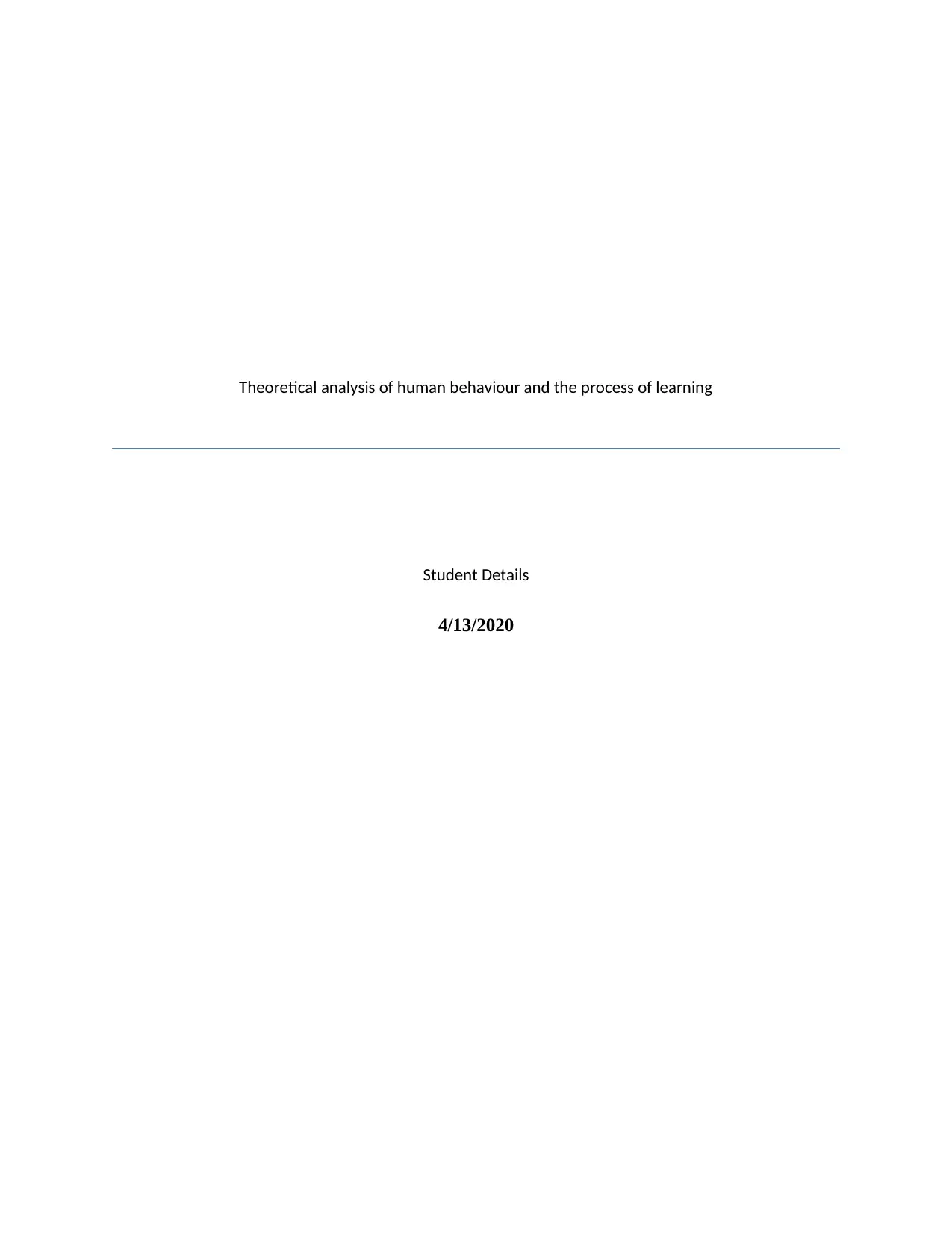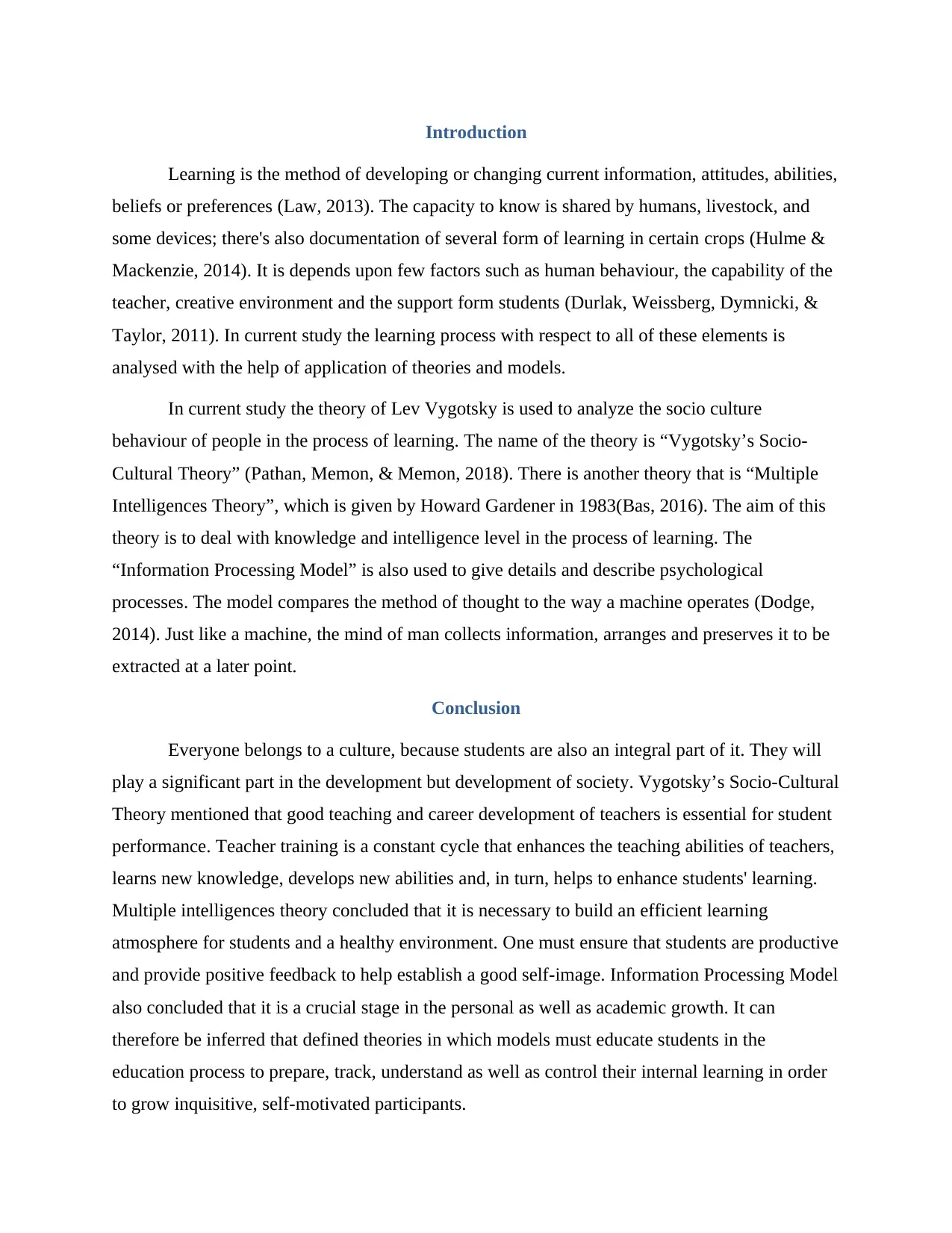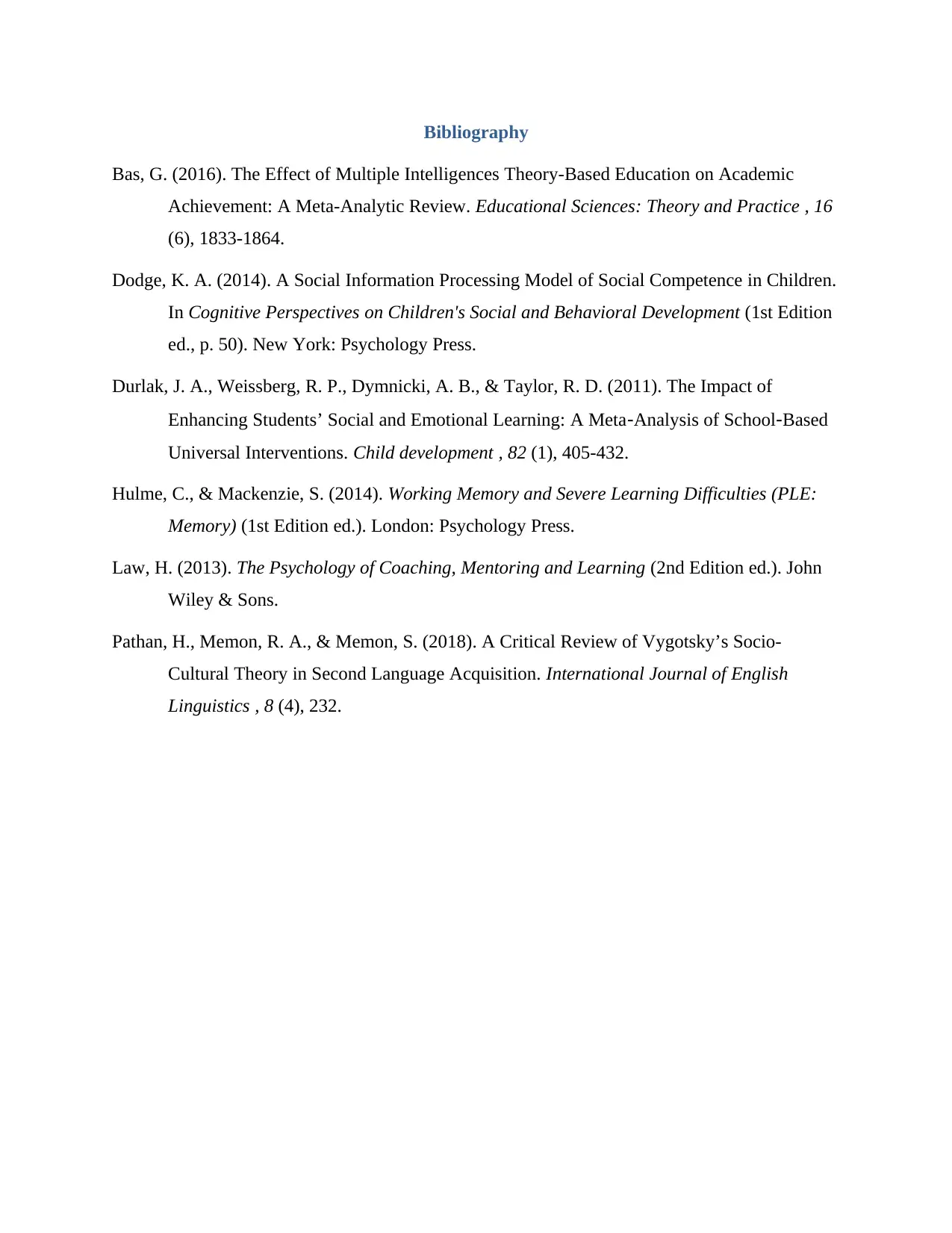Comparative Analysis of Learning Theories: FAM 1003, Algonquin
VerifiedAdded on 2022/09/25
|3
|711
|33
Report
AI Summary
This report presents a comparative analysis of three key learning theories: Vygotsky’s Socio-Cultural Theory, Multiple Intelligences Theory by Howard Gardner, and the Information Processing Model. The assignment, completed for Algonquin College's FAM 1003 course, examines how these theories interpret human behavior and inform teaching practices. It includes an introduction outlining the paper's purpose, detailed templates for each theory, justifications with examples from the student's experiences and academic sources, and a conclusion emphasizing the importance of incorporating these theories into early learning programs. The analysis covers various aspects of each theory, such as their core principles, applications in educational settings, and the role of educators in fostering effective learning environments. The student's understanding of these theories is demonstrated through application of the theories and how each connects to practice (in six different areas) and examples from the student’s experience (either through work or placement) as well as with academic sources using APA standards. The conclusion demonstrates an understanding of why these theories should be incorporated into early learning programs.
1 out of 3










![[object Object]](/_next/static/media/star-bottom.7253800d.svg)